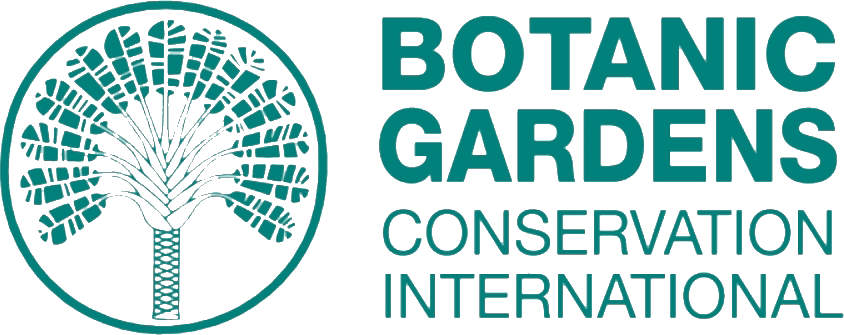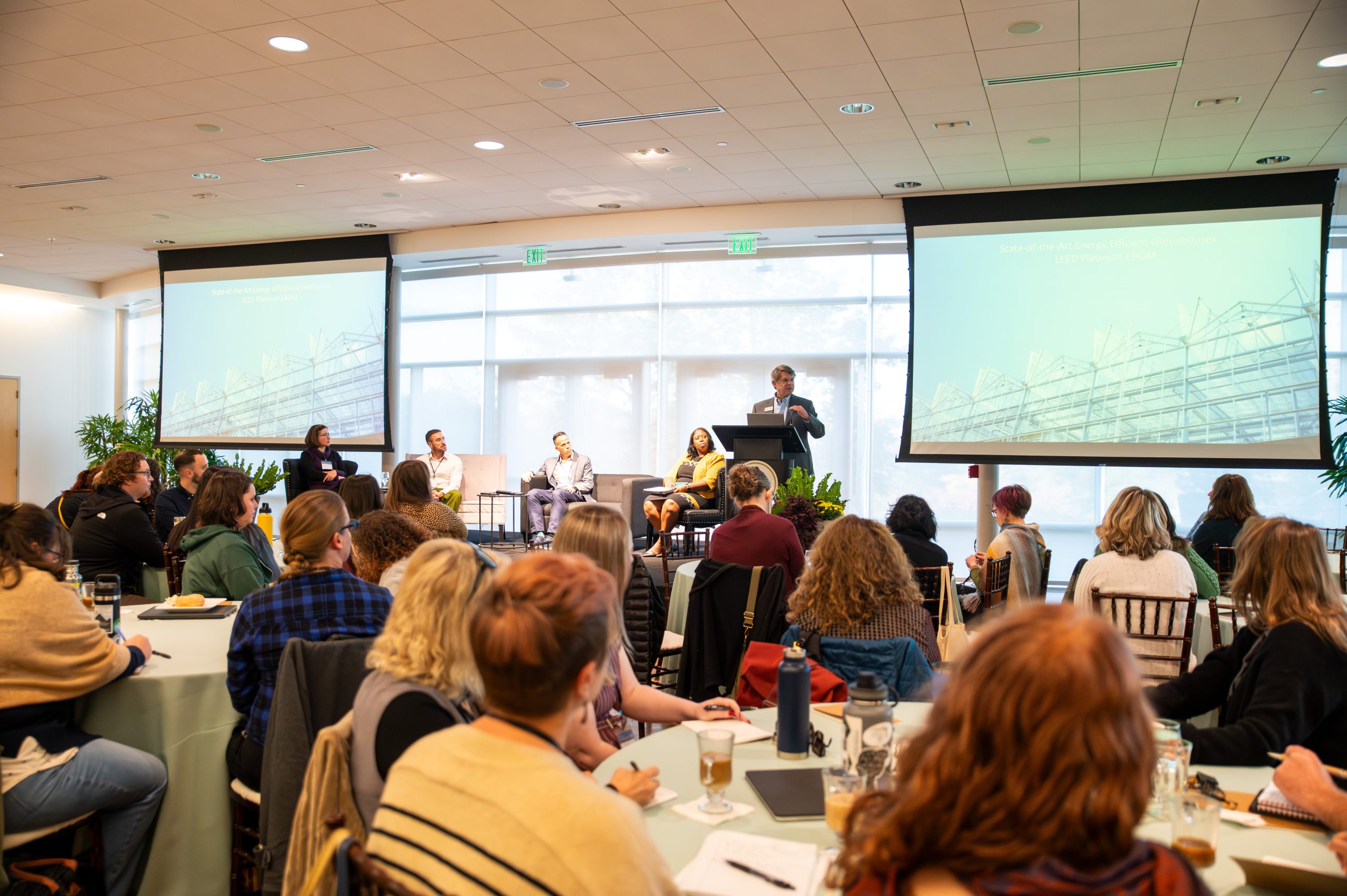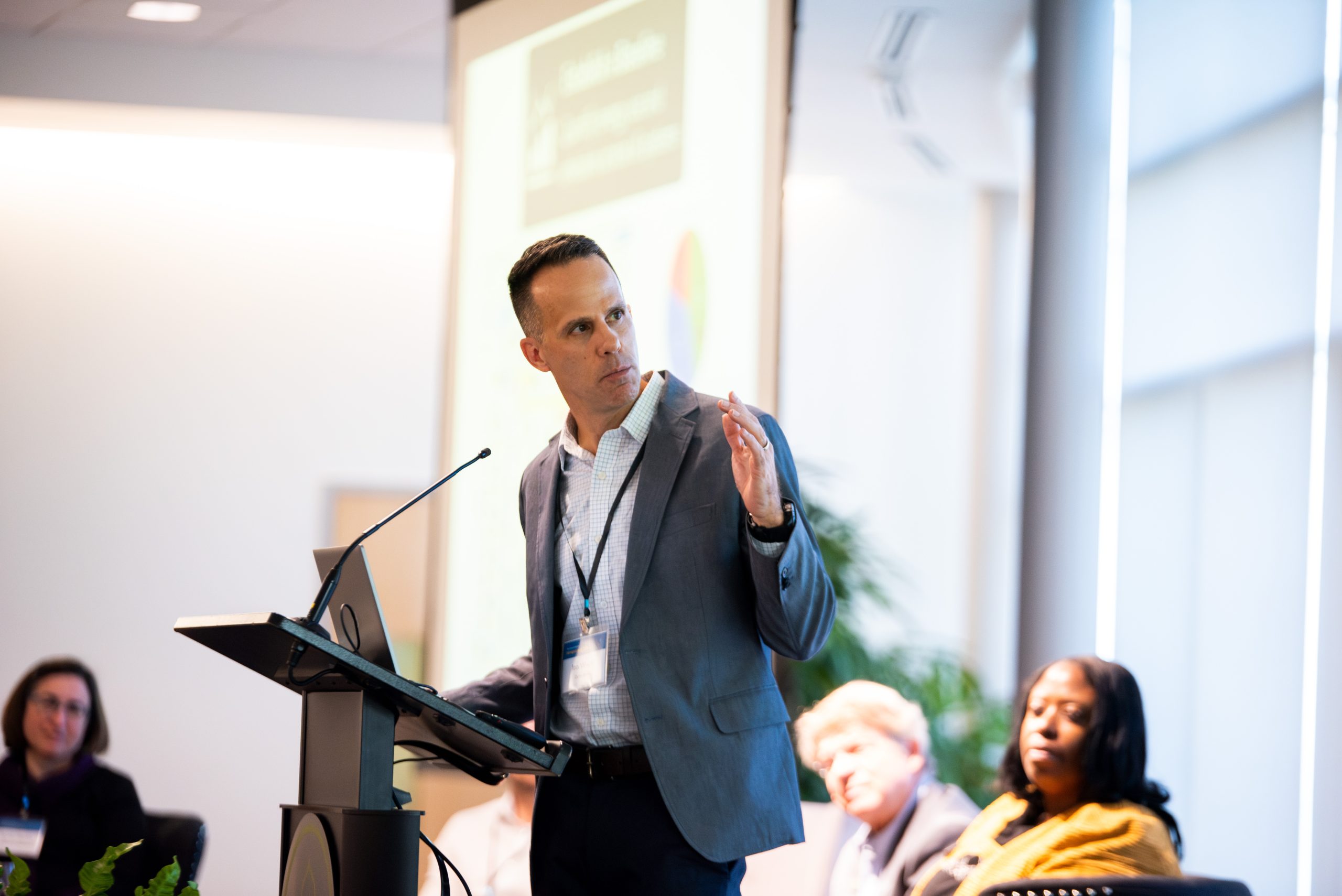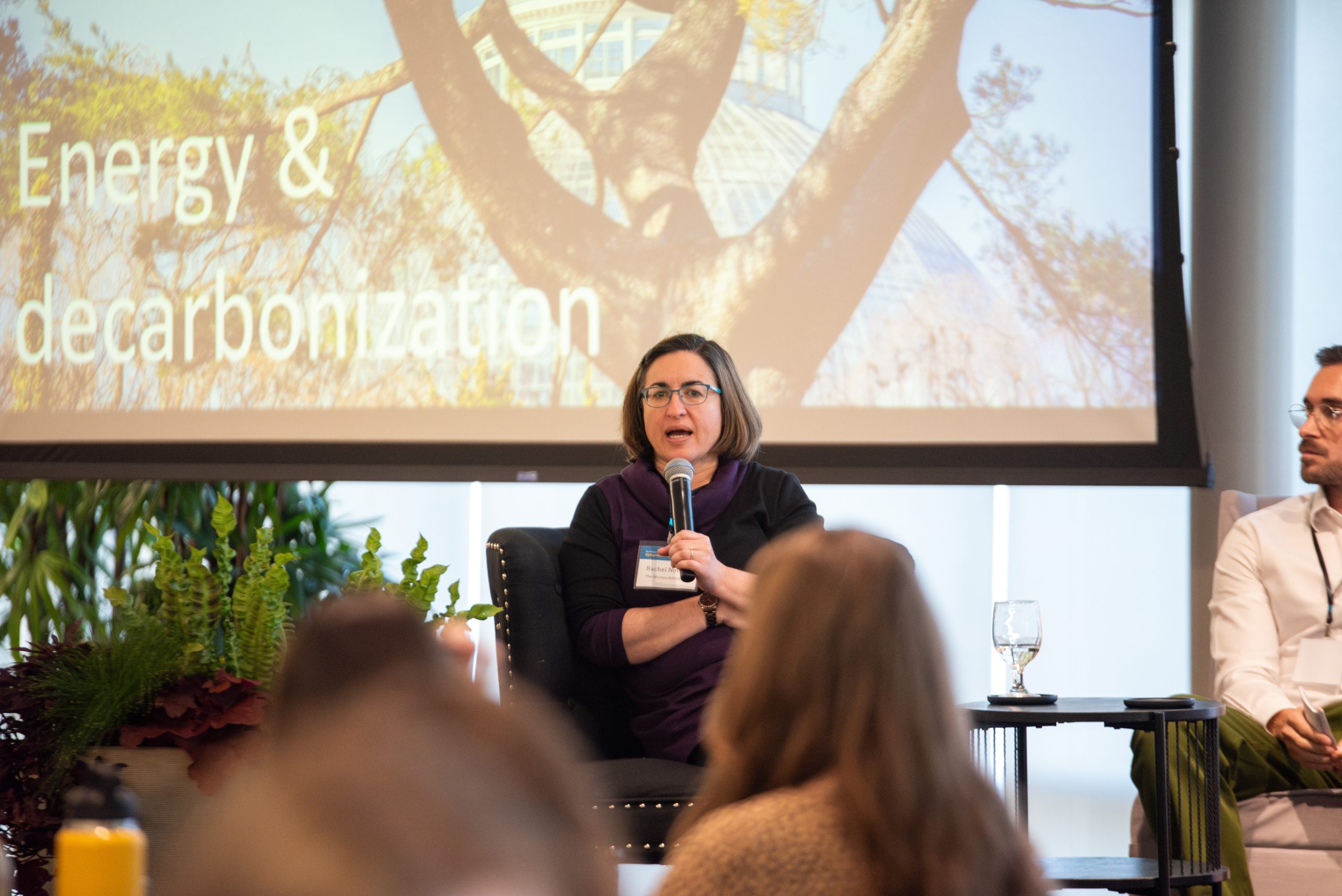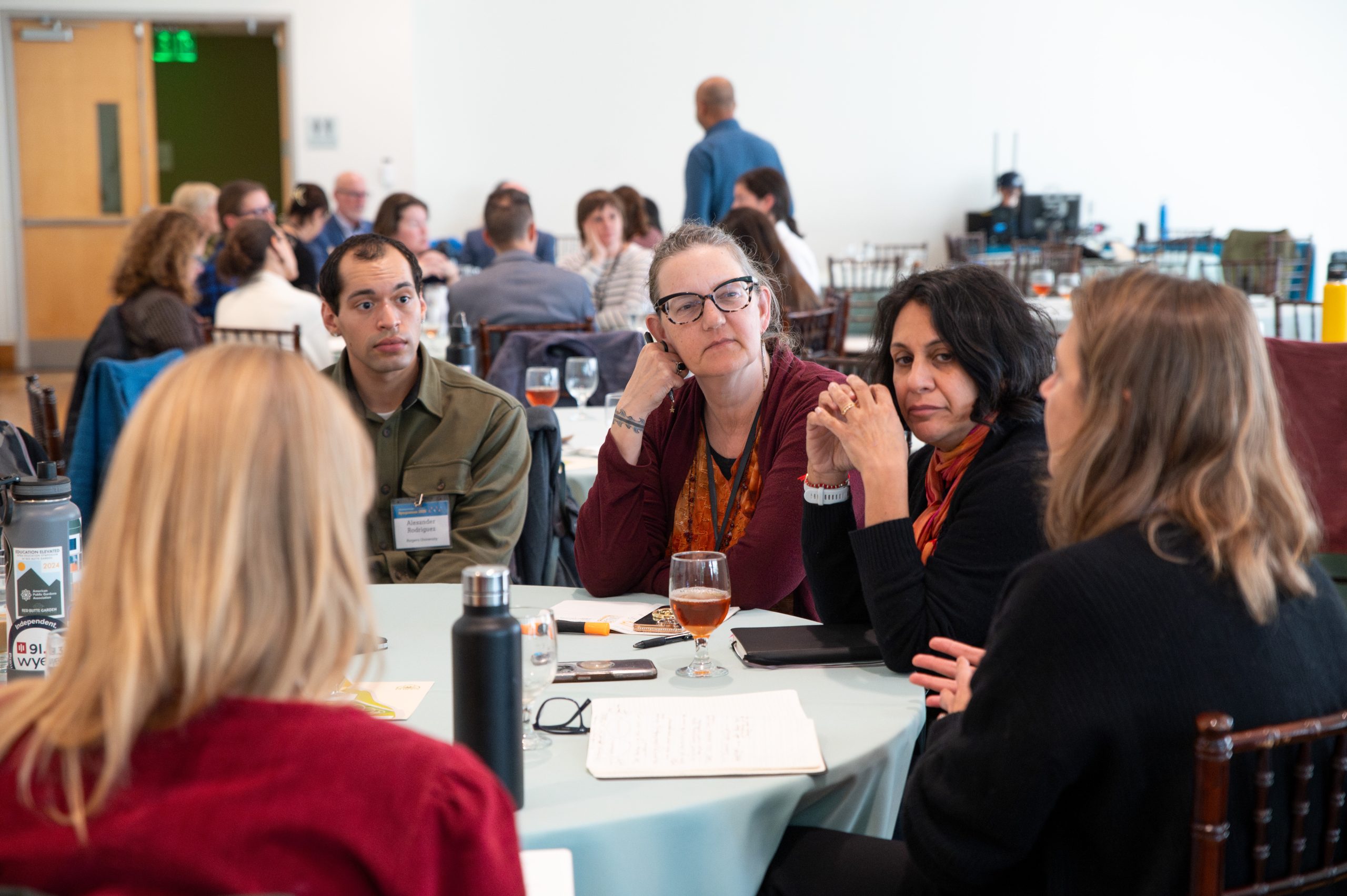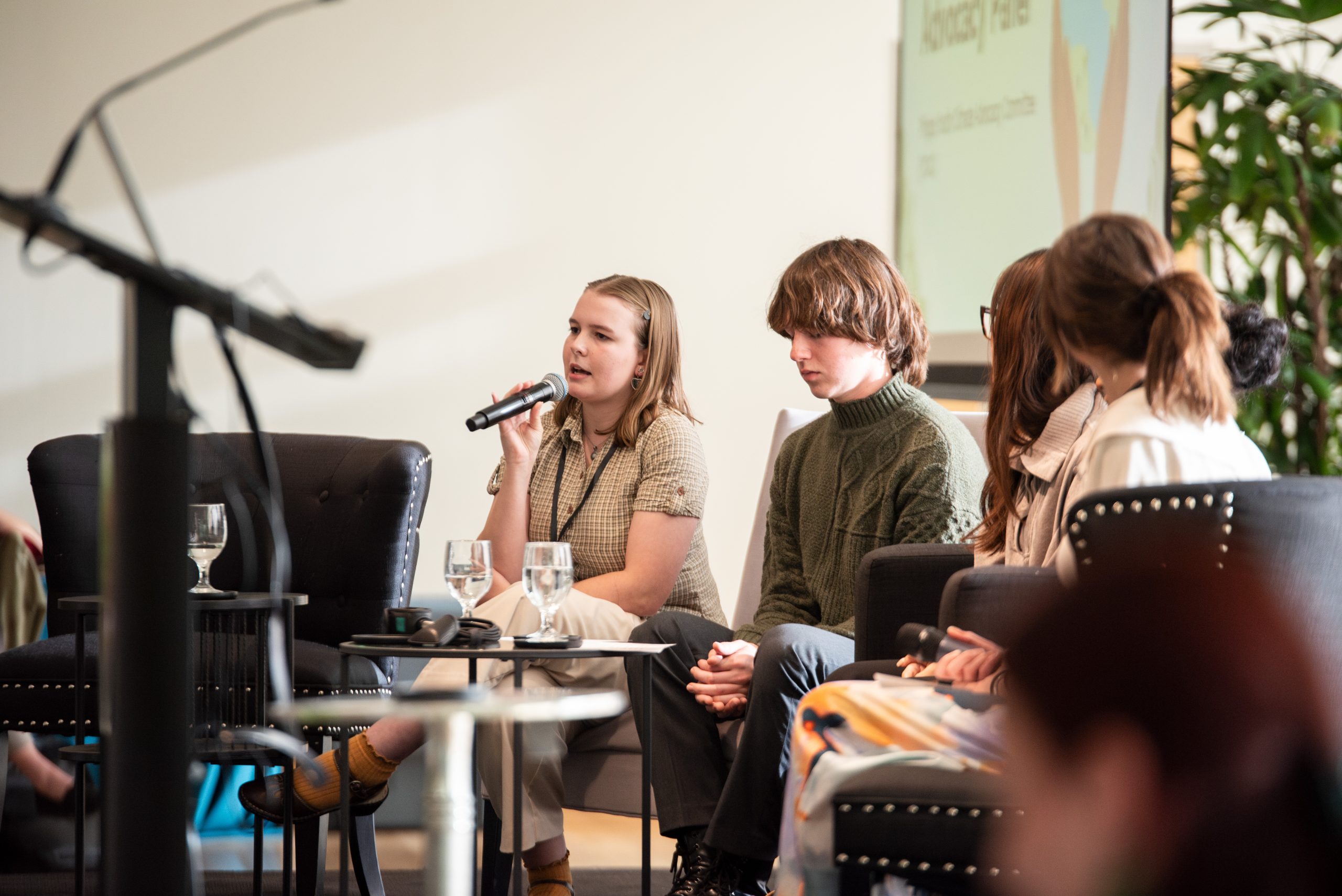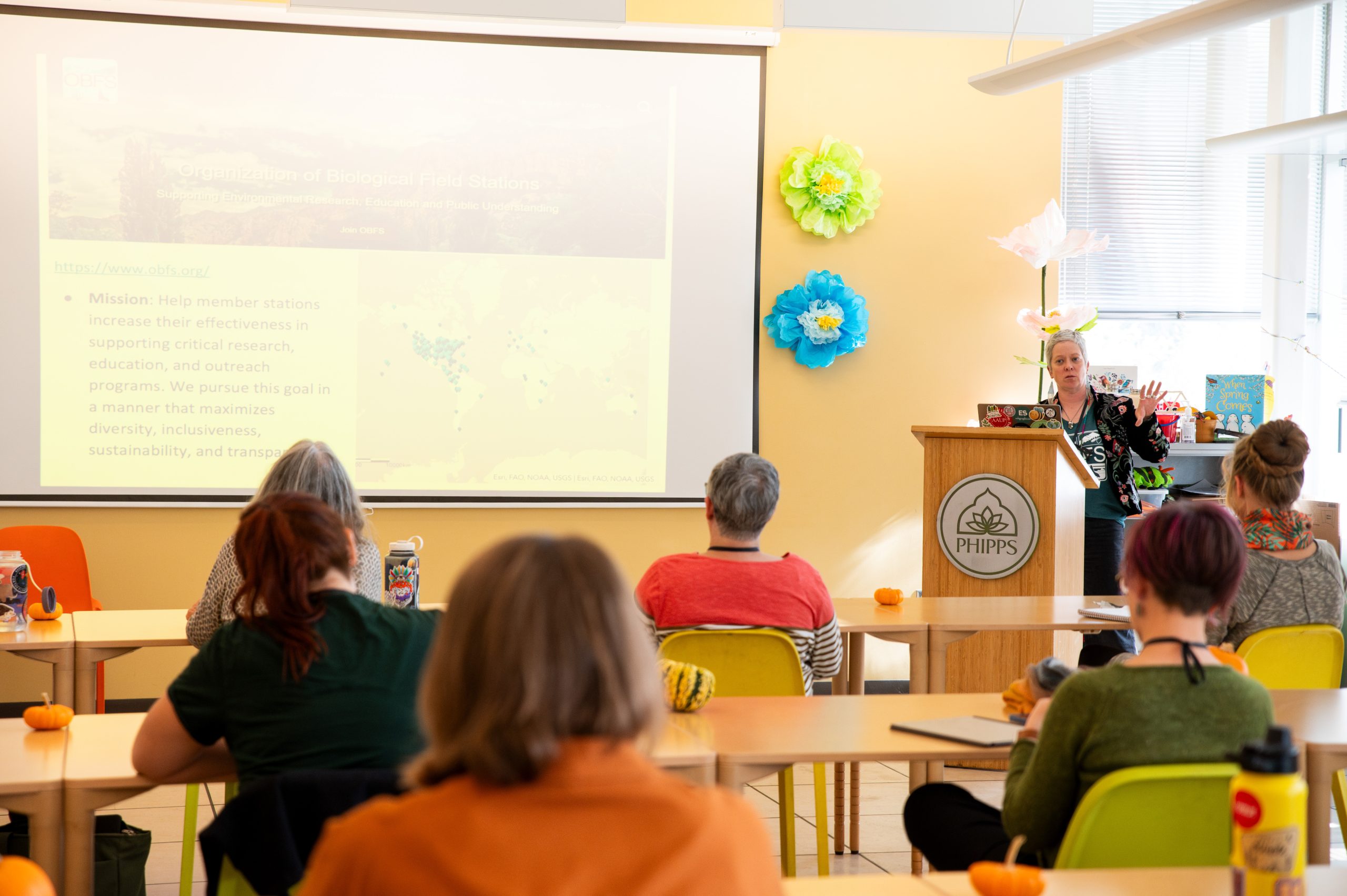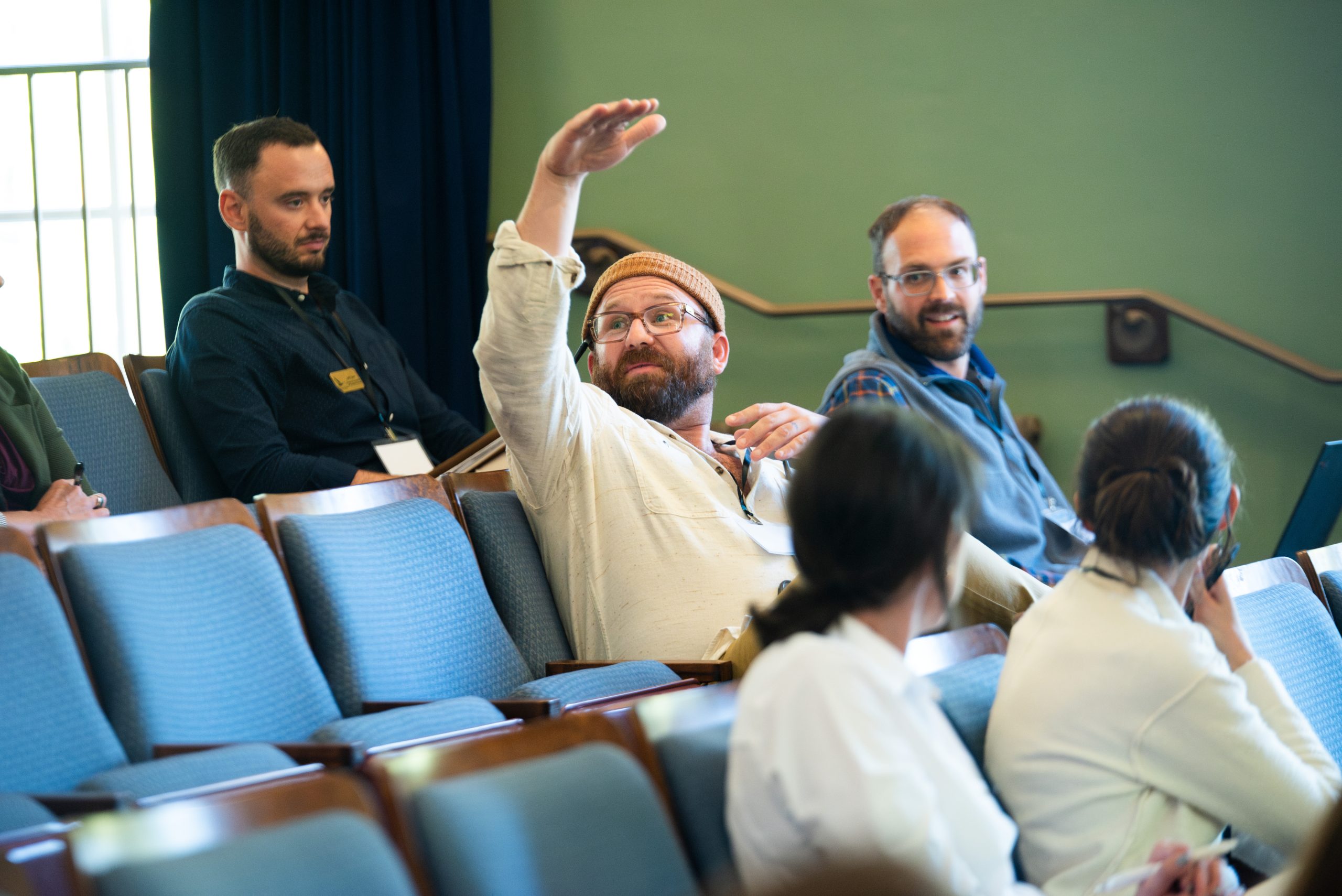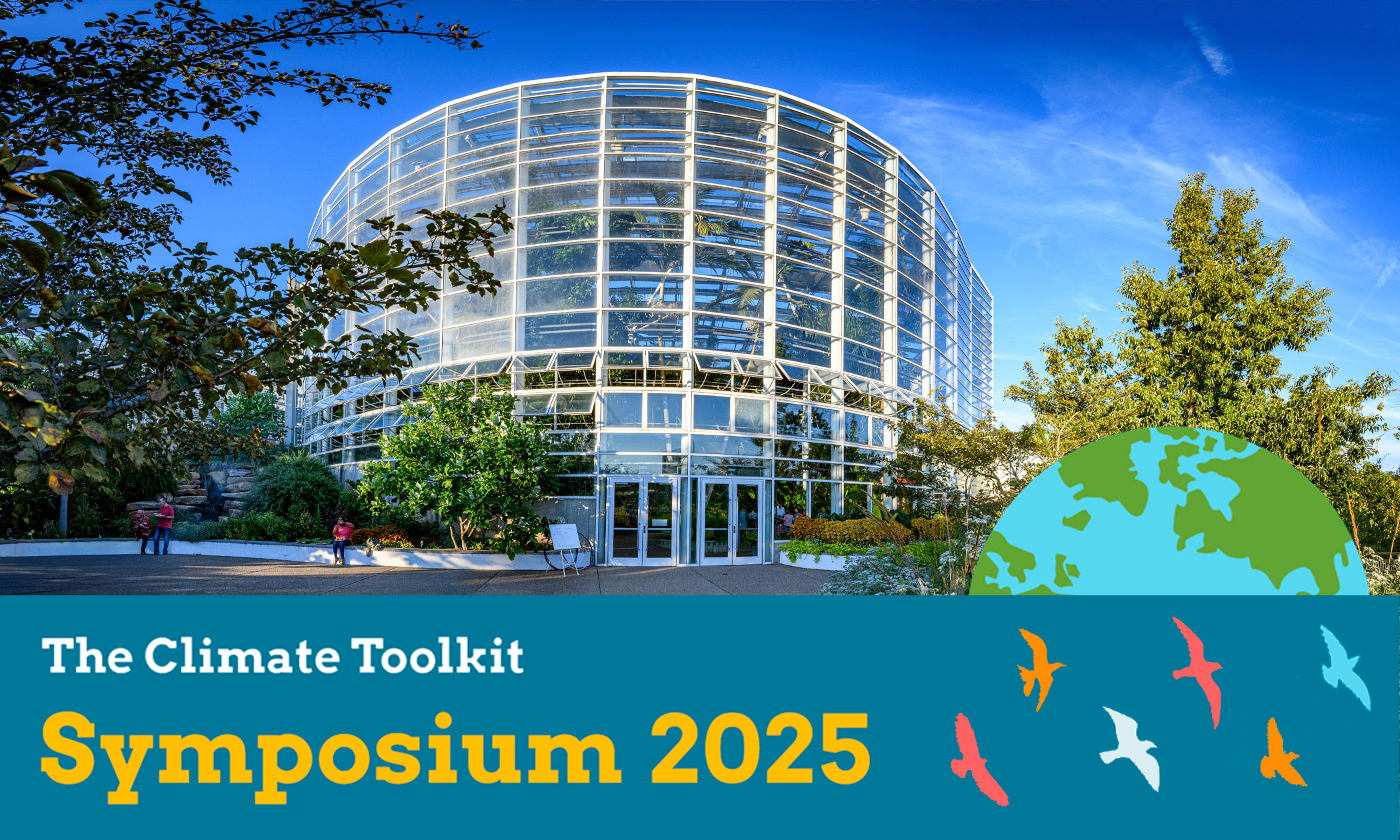
Climate Toolkit Symposium Resources
OUT. 26 - 28, 2025 | CONSERVATÓRIO E JARDINS BOTÂNICOS PHIPPS; PITTSBURGH, PA
Thank you for helping to co-create our inaugural Climate Toolkit Symposium, presented by Phipps Conservatory and Duke Farms. What an incredible two and a half days of learning, collaboration, connection, and conversation. We were thrilled to be in-person with such an inspiring collective of cultural institutions and look forward to the work ahead.
How to Use This Resource
The Climate Toolkit Symposium was structured in three plenary sessions, five breakout discussions, a keynote address, and three climate action workshops, each with its own set of apresentações. On this page, you’ll find each session represented by a video recording, presentation slide deck, and links to further resources and literature. Get started below!
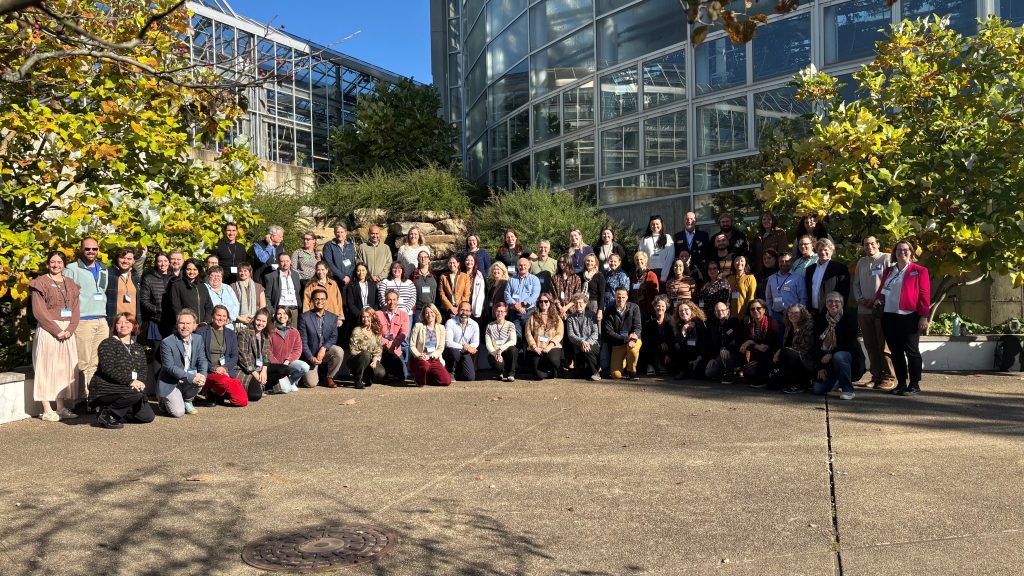
Plenary Session One: Energy and Decarbonization
Cultural institutions are stepping up as climate leaders by reducing carbon emissions and transitioning to renewable energy. In this panel, Richard Piacentini from Conservatório Phipps, Jon Wagar from Quintas Duke, Rachel Novick from O Arboreto de Morton, and Rafael de Carvalho from Jardim Botânico de Nova Iorque shared how they are implementing ambitious decarbonization strategies, offering lessons learned from real-world successes and challenges.
Video Recording:
Presentation Slides:
- Conservatório Phipps – Richard Piacentini, President and CEO
- Quintas Duke – Jon Wagar, Deputy Executive Director of Operations and Sustainability
- O Arboreto de Morton – Rachel Novick, Ph.D., Director of Sustainability
- Jardim Botânico de Nova Iorque – Rafael de Carvalho, Associate Vice President for Capital Projects
Plenary Session Two: Climate Interpretation & Engagement
How can institutions engage with the public on a changing climate? This panel presentation brought together Anais Reyes from O Museu do Clima, Casey Mink from Museu de História Natural do Utah, Jen Kretser from O Centro Selvagem, and Mark Wourms from Floresta e Arboreto de Bernheim to highlight creative approaches to interpretation and engagement that inspire audiences to participate in climate solutions.
Video Recording:
Presentation Slides:
- O Museu do Clima – Anais Reyes, Curator
- Museu de História Natural do Utah – Casey Mink, Assistant Exhibits Developer
- O Centro Selvagem – Jen Kretser, Director of Climate Initiatives
- Floresta e Arboreto de Bernheim – Mark Wourms, Ph.D., President, Chief Executive Officer
Áreas de concentração dos grupos de trabalho I: Gestão de resíduos e soluções baseadas na natureza
Breakout tracks offered participants an opportunity for focused conversation on specific areas of climate action. Each session began with a short presentation from a subject expert, followed by a facilitated, round-table discussion to support knowledge sharing and problem-solving. Allie Tilson from the Aquário Nacional led a breakout room through engaging thought exercises on streamlining institutional waste practices; and Jeff Downing from Centro Mt Cuba and Dr. Christy Rollinson from O Arboreto de Morton led another breakout on utilizing our community platforms to accelerate nature-based solutions through native plant conservation, habitat restoration, and urban tree planting.
Gestão de resíduos e envolvimento do pessoal
Interview:
Presentation Slides:
- Aquário Nacional – Allison Tilson, Senior Manager of Sustainability and Conservation Operations
Soluções baseadas na natureza
Video Recording:
Presentation Slides:
- Centro Monte Cuba – Jeff Downing, Executive Director
- O Arboreto de Morton – Christy Rollinson, Ph.D., Senior Scientist, Forest Ecology
Breakout Focus Areas II: Climate Research; Conservation and Action; Facilities Management
The second round of breakout focus areas featured three discussions: Dr. Chelsea Miller and Dr. Lara Roketenetz from the Estação de Campo da Universidade de Akron led a discussion on the intersection of education, community science and academic research; Dr. Shafkat Khan from Zoo e Aquário de Pittsburgh facilitated intimate round-table discussions on conservation and action beyond our campuses; and Jim Hanson and Joe Zalenko from Quintas Duke engaged facilities and sustainability staff on electrification equipment, operations software, and best practices for facilities management.
Conservation and Action
Video Recording:
Presentation Slides:
- Zoo e Aquário de Pittsburgh – Shafkat Khan, Ph.D., Director of Conservation
Outros recursos:
Investigação climática
Interview:
Presentation Slides:
- Estação de Campo da Universidade de Akron – Chelsea Miller, Ph.D., Assistant Professor, Global Change Biology, and Lara Roketenetz, Ph.D., Field Station Director
Gestão de instalações
Interview:
Presentation Slides:
- Quintas Duke – Jim Hanson, Manager of Sustainability and Technology, and Joe Zalenko, Facilities Manager
Plenary Session Three: Youth Climate Advocacy
Amplifying youth voices is critical to advancing the climate movement and driving action within communities. In this panel and Q&A session, we heard directly from Emma Ehan, Anwita Maneish Nithya, Cortlan Harrell, and Marley McFarland, leaders of Phipps’ Youth Climate Advocacy Committee, on how to battle climate anxiety while activating the next generation of young changemakers.
Video Recording:
Presentation Slides:
- Phipps’ Youth Climate Advocacy Committee – Phipps’ YCAC Team Leaders
Keynote Address: “Our Finest Hour: Looking Back from the Year 2276”
In this keynote address, David W. Orr, Professor Emeritus at Oberlin College, provided a sobering outlook on the current state of the intertwined political and climate crises while offering key perspectives on how we as a society can advocate for climate action during turbulent times.
Video Recording:
Presentation Slides:
- “Our Finest Hour: Looking Back from the Year 2276” – David W. Orr
A essência como bússola: Orientar a ação climática com pensamento regenerativo
This session, led by Richard Piacentini from Conservatório Phipps and Sonja Bochart of LENS / Shepley Bulfinch, invited participants to explore the power of working from essence—connecting with the unique core of who they are and what truly matters. From this foundation, our actions become more regenerative, our strategies more aligned, and our potential for lasting impact more fully realized.
Interview:
Presentation Slides:
Resources and Worksheets:
Climate Action Resiliency Planning
This session, led by Stephanie Shapiro and Al Carver-Kubik of Parceiros ambientais e culturais, engaged participants through institutional baseline climate and community assessments, implementation exercises, and prioritization frameworks to help form the basis of climate resiliency planning.
Interview:
Presentation Slides:
- Formação de um Plano de Resiliência de Ação Climática – Stephanie Shapiro, Co-Founder & Managing Director, and Al Carver-Kubik, Program Officer, Grants & Research, Environment & Culture Partners
Resources and Worksheets:
Civic Engagement: Becoming Your Community’s Climate Resource
Our final climate action workshop of the symposium, led by Rose Hendricks of Rede de ação de sementeira da ASTC, engaged participants to think deeply about strategies for civic engagement and community action to improve planetary health.
Interview:
Presentation Slides:
- Becoming Your Community’s Climate Resource – Rose Hendricks, Ph.D., Executive Director of Seeding Action
Resources and Worksheets:
- Becoming Your Community’s Climate Resource Worksheet
- ASTC’s Civic Engagement & Policymaking Toolkit
- Yale Program on Climate Change Communications Opinion Maps
- Potential Energy Coalition “Later is too late”: Global Data Explorer
Photography
Perguntas? Resources to share? Contacto alampl@phipps.conservatory.org ou 412-622-6915, ext. 6752
APRESENTADO POR


Sobre Phipps: Fundado em 1893, o Phipps Conservatory and Botanical Gardens em Pittsburgh, PA, é um líder ecológico mundialmente reconhecido com a missão de inspirar e educar todos com a beleza e a importância das plantas; de promover a sustentabilidade e o bem-estar humano e ambiental através da ação e da investigação; e de celebrar a sua estufa histórica. Abrangendo 15 acres, incluindo uma estufa histórica de 14 quartos, 23 jardins interiores e exteriores distintos e arquitetura e operações sustentáveis líderes na indústria, o Phipps atrai anualmente mais de meio milhão de visitantes de todo o mundo. Saiba mais em phipps.conservatory.org.
Sobre a Duke Farms: A Duke Farms é um laboratório vivo onde desenvolvemos estratégias modelo para a recuperação da natureza, conservação da vida selvagem e transição para energias limpas. Localizado em 2.700 acres em Hillsborough, Nova Jérsia, o nosso campus é um local de encontro entre decisores globais e vizinhos locais para desencadear a mudança. A Duke Farms é um centro da Fundação Doris Duke que se esforça por construir um futuro mais criativo, equitativo e sustentável. Saiba mais em dukefarms.org.


